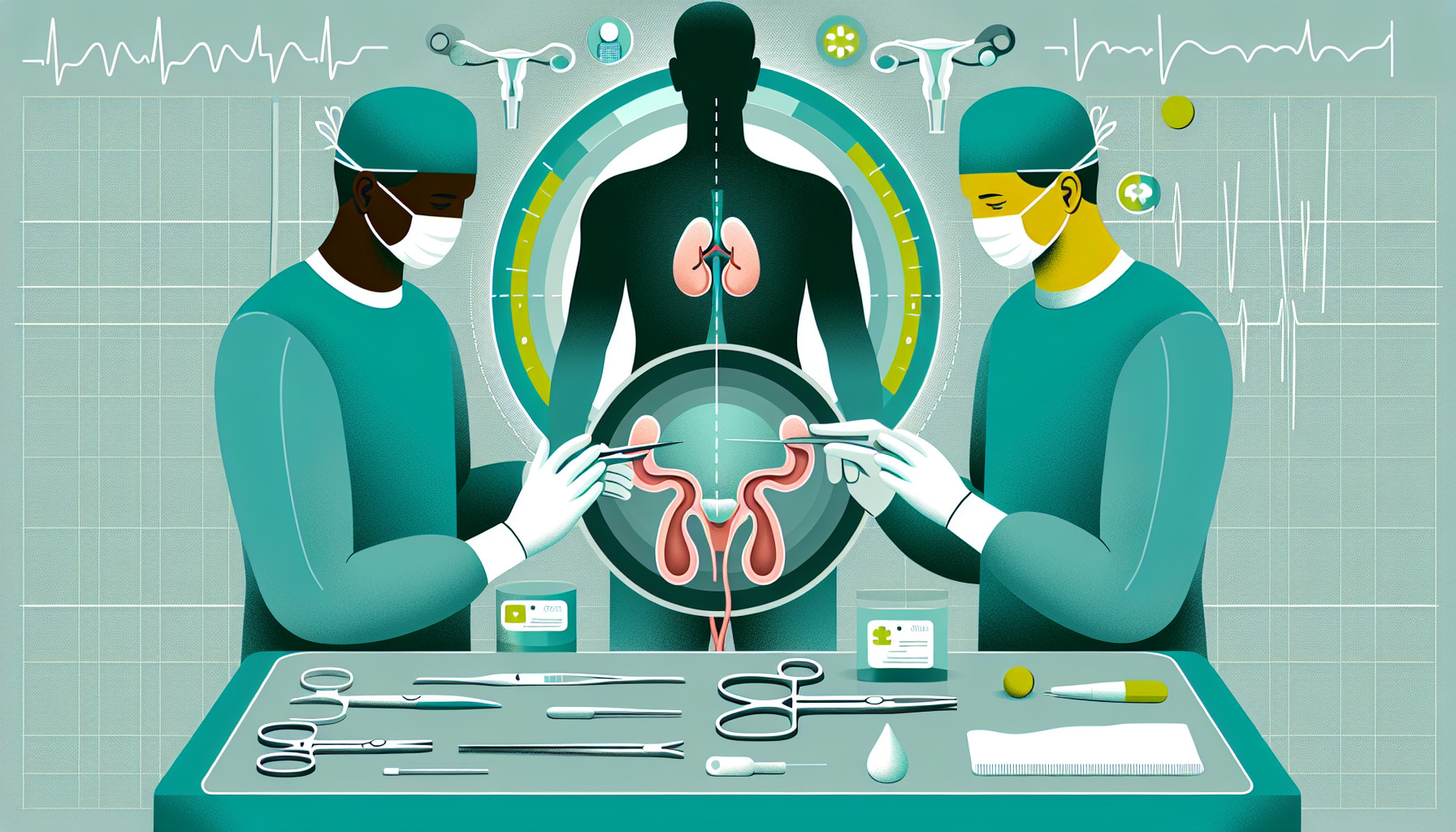Our Summary
This research paper discusses the process of ‘radical cystectomy,’ a major surgical procedure often performed on older and potentially weak patients. This operation involves removing all or part of the urinary bladder, usually as a treatment for bladder cancer.
The paper highlights that there have been significant improvements in patient outcomes due to better preparation before surgery (preoperative optimization) and management during surgery (intraoperative optimization).
Before surgery, the focus is on educating the patient, reducing potential risks, evaluating the severity of risks, ensuring proper nutrition, and improving bowel movement.
During the operation, the emphasis is on maintaining the patient’s normal body temperature, restricting fluid administration, reducing the need for blood transfusions, and managing pain without the use of opioids. These optimizations have been instrumental in increasing the success rate of this procedure.
FAQs
- What is radical cystectomy and who usually undergoes this procedure?
- What are the key steps in preoperative and intraoperative optimization for radical cystectomy?
- How have advances in management improved patient outcomes in radical cystectomy?
Doctor’s Tip
A helpful tip that a doctor might tell a patient about cystectomy is to follow preoperative instructions carefully, such as staying hydrated, eating a balanced diet, and avoiding certain medications that may interfere with the surgery. It is also important to discuss any concerns or questions with your healthcare team before the procedure to ensure the best possible outcome. Additionally, following postoperative care instructions, such as taking prescribed medications, attending follow-up appointments, and participating in physical therapy, can help facilitate a smooth recovery process.
Suitable For
Patients who are typically recommended for cystectomy are those with bladder cancer that has invaded the muscle wall of the bladder (muscle-invasive bladder cancer) or those with high-risk non-muscle invasive bladder cancer that has not responded to other treatments. These patients may have failed to respond to intravesical therapies or have a high risk of disease progression. Additionally, patients with recurrent or aggressive bladder cancer may also be recommended for cystectomy. It is important for patients to undergo thorough preoperative evaluation and risk stratification to determine if cystectomy is the most appropriate treatment option for them.
Timeline
Before cystectomy:
- Patient is diagnosed with bladder cancer and undergoes various diagnostic tests to determine the extent of the disease.
- Patient consults with a urologist to discuss treatment options, including cystectomy.
- Patient undergoes preoperative optimization, which may include education on the procedure, risk factor reduction, nutritional optimization, and bowel motility enhancement.
- Patient may undergo additional tests and procedures to prepare for surgery, such as imaging studies and blood work.
After cystectomy:
- Patient undergoes radical cystectomy surgery to remove the bladder and surrounding tissues.
- Patient may require a temporary or permanent urinary diversion procedure, such as an ileal conduit or neobladder.
- Patient may experience pain, discomfort, and potential complications following surgery.
- Patient undergoes postoperative care, including monitoring for infections, managing pain, and rehabilitation.
- Patient may require additional treatments, such as chemotherapy or radiation therapy, depending on the stage and aggressiveness of the cancer.
- Patient undergoes long-term follow-up care to monitor for recurrence of the cancer and manage any ongoing issues related to the surgery.
What to Ask Your Doctor
- What are the risks and potential complications associated with cystectomy?
- What is the expected recovery time and what can I do to optimize my recovery?
- What alternative treatment options are available for my condition?
- Will I need any additional treatments or therapies after the cystectomy?
- How will my quality of life be affected after the procedure?
- What can I do to prepare myself physically and mentally for the surgery?
- How many cystectomies have you performed and what is your success rate?
- What follow-up care and monitoring will be needed after the cystectomy?
- Are there any specific dietary or lifestyle changes I should make before or after the surgery?
- Are there any clinical trials or new advancements in cystectomy that I should be aware of?
Reference
Authors: Campbell JG, Smelser WW, Lee EK. Journal: Urol Clin North Am. 2018 May;45(2):169-181. doi: 10.1016/j.ucl.2017.12.003. PMID: 29650133
